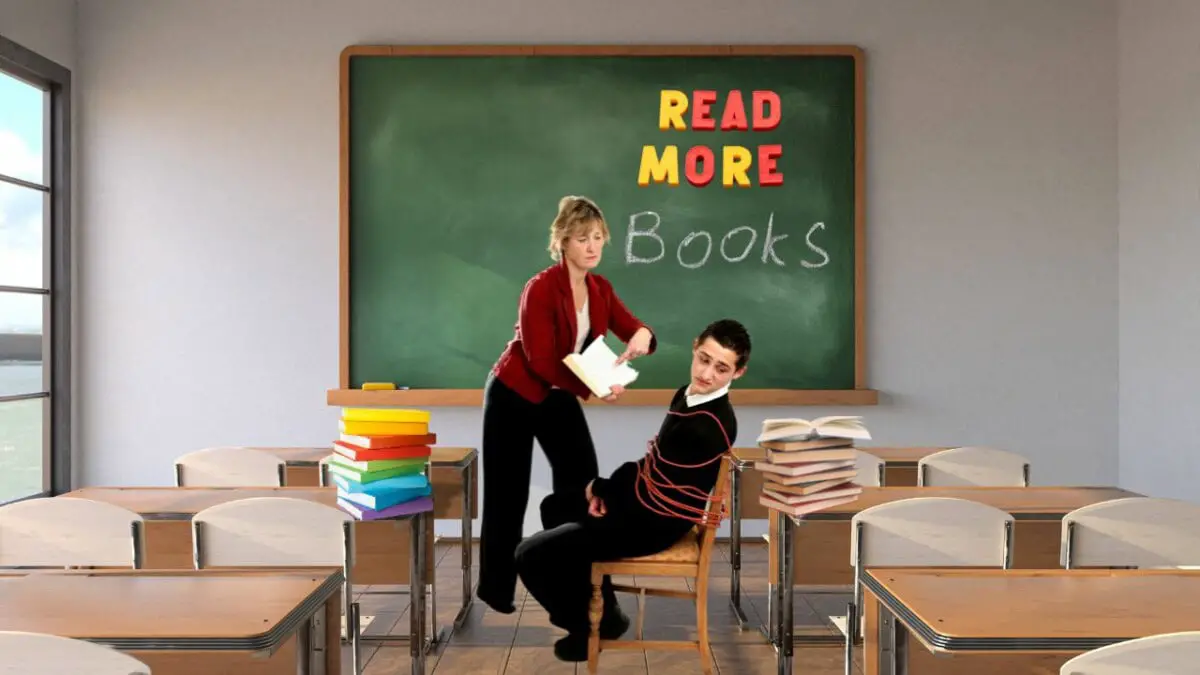Reading is a fundamental skill that opens doors to knowledge, yet for some individuals, it remains an unexplored realm. In this article, we delve into the intricacies of why certain people harbor dislike to reading. Understanding these reasons can potentially inspire change and encourage personal growth.
Not everyone finds joy in reading because reading is often associated with homework or classwork. Typically, people prefer leisure and enjoyment over any form of work. People can shift their views of reading as a source of entertainment, akin to flipping through the pages of a comic book. Embracing this pleasure mindset of reading can lead to the discovery of a fulfilling and engaging activity that extends beyond academic obligations.
1. Lack of Interest in Subject Matter Cause Dislike for Reading
Many people’s disinterest in reading can stem from a lack of engagement with the subject matter. The world overflows with diverse interests, and not everyone joyfully immerses themselves in conventional reading materials. A misalignment of personal interests or an inability to connect with the material may make it difficult for individuals to dedicate time to reading when they find that the content does not resonate with them.
Contrarily, the discovery of an appropriate genre or topic that harmonizes with personal passions can significantly alter one’s trajectory. The act of exploring diverse genres and broadening literary horizons has the potential to unveil a multitude of possibilities. Reading transcends mere perusal. It involves locating that elusive intersection where curiosity intersects content, thereby transforming not just into enjoyment but also personal significance.

2. Time Constraints and Busy Lifestyles
Time is a precious commodity in our fast-paced world today. People continually juggle work, family, and personal commitments, leaving little room for leisure activities, reading is one of them.
The notion that significant time investment is required to read may dissuade individuals from engaging with books. To foster a reading habit, one pivotal step could involve exploring methods of integrating reading into busy schedules.
Indeed, embracing a “micro-reading” approach offers an accessible solution for individuals with busy schedules. Rather than perceiving reading as an exclusively comprehensive activity, one can enhance their engagement with literature by incorporating shorter sessions during breaks or commute times. This strategy acknowledges that even minimal time allocations significantly enrich the overall reading experience, effectively dispelling any notion that it is solely reserved for leisurely moments.
3. Negative Reading Experiences in Education
Negative experiences with reading in their formative years can indeed cast a lengthy shadow on some individuals. The struggle against dense academic texts, the endurance of tedious assignments, or the pressure from exams might have indelibly marked them. They may need to rediscover the joy of reading through more enjoyable and self-selected materials as they overcome these negative associations with literacy.
On the other hand, one can reshape their relationship with literature by creating positive reading habits early. The introduction of engaging and age-appropriate books during childhood often instills a lifelong love for reading.
Educational institutions have a pivotal role to play in fostering positive experiences with reading. They should integrate diverse, interesting materials into their curriculum, creating an environment where pleasure is associated with more than chores when it comes to picking up books.

4. Overwhelm in the Digital Age
In an era where digital stimuli dominate, individuals may struggle to concentrate on extensive written content. The ceaseless information bombardment via social media, videos, and other online platforms can shorten attention spans. Exploring strategies for navigating this digital overload is crucial. It fosters a conducive environment essential for sustained reading.
Furthermore, one must recognize the significant impact of periodic unplugging from digital devices on their reading habits. By designating specific “digital detox” periods, individuals can disconnect from the online world and immerse themselves in a slower, more contemplative pace of reading. A balanced approach that incorporates quality reading alongside screen time leads to enhanced focus and reinvigorates appreciation for the literature’s depth.
Breaking the Barrier – Inspiring a Love for Reading
To address these challenges, we must adopt a nuanced approach. It necessitates the recognition of individual preferences and the promotion of an amiable reading environment. Encouragement towards developing a love for reading is vital. Here’s where the following practical steps come into play:

1. Personalized Reading Lists
Curating personalized reading lists can transform the experience. By tailoring recommendations to individual interests, we enhance the likelihood of finding books that deeply resonate with our passions. The result? An enjoyable and rewarding reading journey.
Additionally, explore niche genres or lesser-known authors. Unconventional places can sometimes hide literary gems. Embrace diverse voices and unique perspectives to broaden your reading horizons. This will infuse depth and richness into the journey of reading.
2. Time Management Strategies
Empowering individuals with effective time management strategies enables them to devote dedicated reading time. They can make reading a manageable and enjoyable activity by allocating a specific time each day or incorporating it into their existing routines.
Moreover, a practical approach involves integrating short reading sessions throughout the day. By breaking down the overall reading time into smaller segments, it becomes less overwhelming and more achievable. Actively seeking those pockets of available time during commutes, lunch breaks, or pre-bedtime moments. Significantly contributes to cultivating a consistent habit of reading.
3. Redefining Reading in the Digital Age
We must redefine the notion of reading, acknowledging the challenges that arise from the digital era. By incorporating audiobooks, podcasts, and other audio-based formats into our reading repertoire, we can revolutionize accessibility to literature for individuals with demanding lifestyles.
Embracing interactive and multimedia elements in digital reading platforms enhances the reading experience. Annotations, discussion forums, and multimedia content create a dynamic way to consume written material, an engaging method that bridges traditional with digital reading.
4. Fostering Positive Reading Associations
To overcome negative associations with reading, one must create positive experiences. Encouraging the establishment of book clubs and initiating reading circles or discussions are actions that foster a sense of community and shared enthusiasm for literature, transforming it into an enjoyable social activity.
Moreover, harnessing technology to engage with global readers can intensify the community spirit. Virtual book clubs, literature-focused online forums, and social media platforms offer pathways for people. They share their experiences in reading, and recommend insightful pieces of text, thus creating a virtual realm where joyous participation in reading becomes not just an individual act but also a collective celebration.
Conclusion
Conclusively, we must understand the reasons behind some individuals’ aversion to reading to initiate positive change. Addressing personal preferences, time constraints, negative past experiences and the challenges posed by the digital age allows us to embark on a journey of rediscovering joy within literature. Embracing this transformative power of books can then inspire an unconditional love for reading that transcends all barriers.





